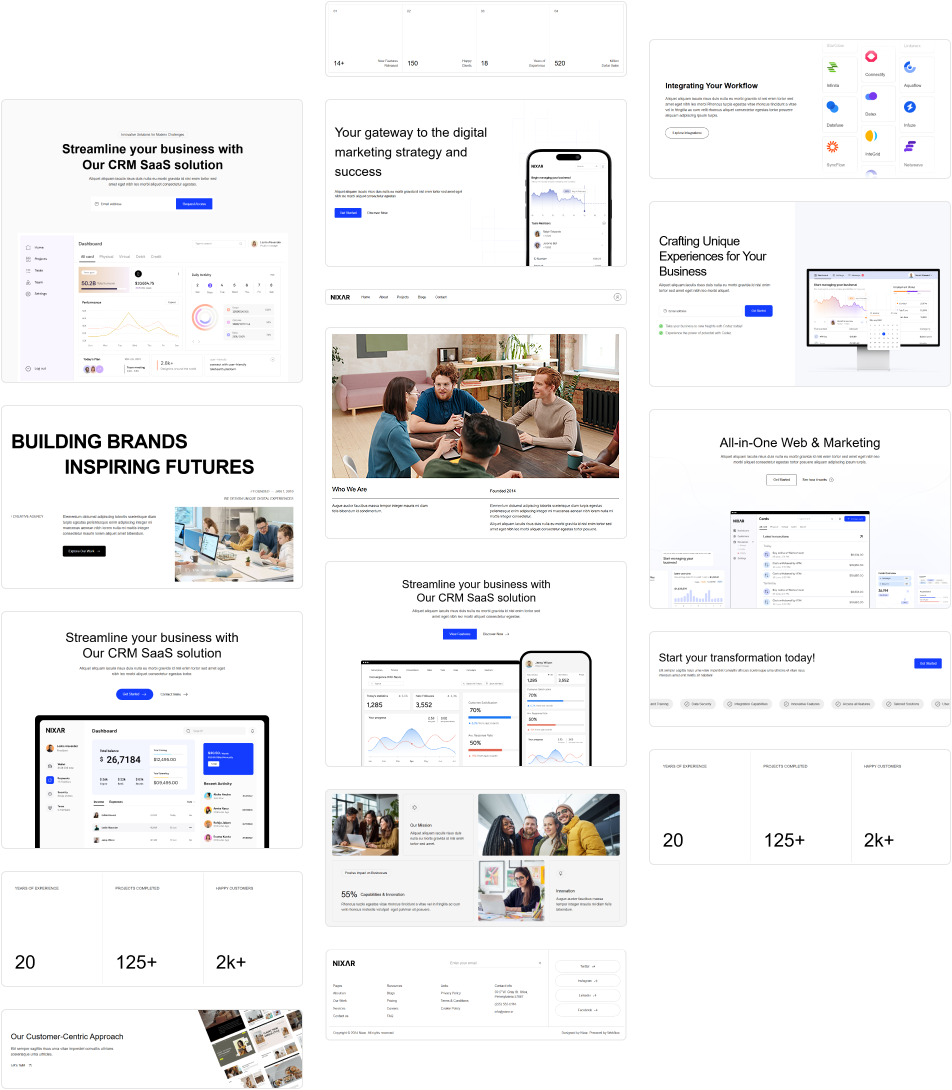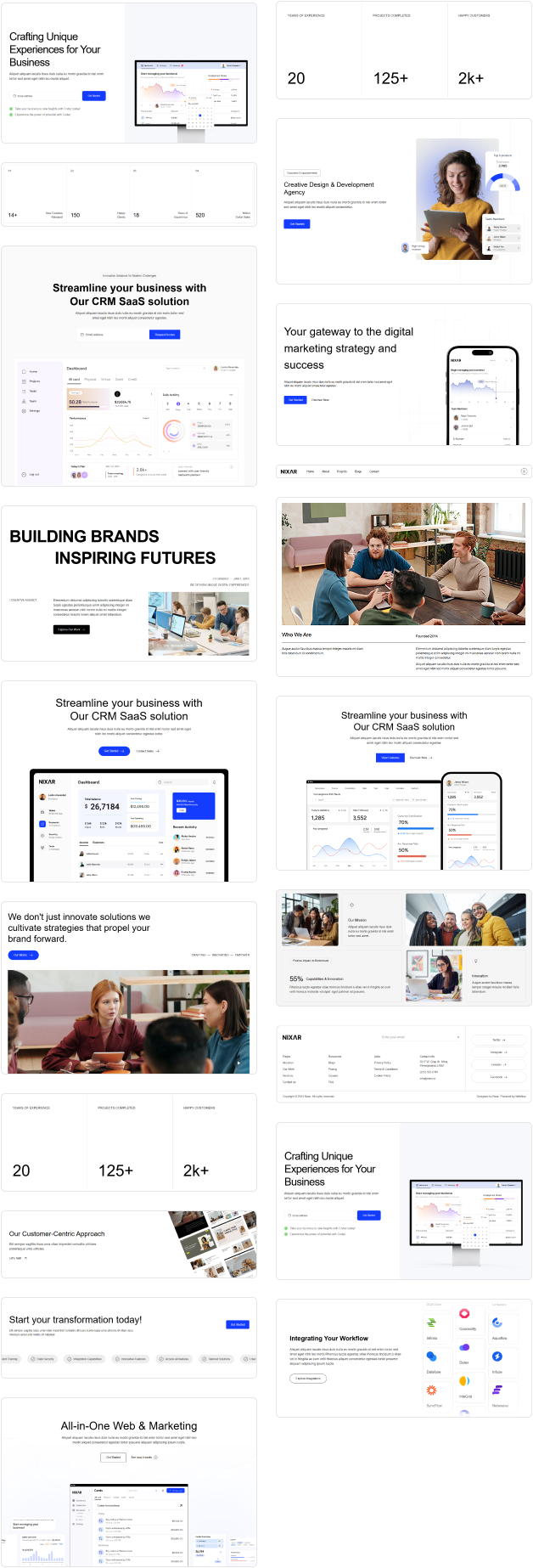Stay ahead in digital marketing with the latest trends! From AI-driven personalization and voice search optimization to short-form videos and influencer marketing evolution, these strategies are reshaping the industry.
Embrace interactive content, social commerce, and ethical data practices to engage modern consumers effectively.
Artificial Intelligence (AI) and Automation
AI is revolutionizing digital marketing by automating tasks, enhancing customer interactions, and providing valuable insights.
- Chatbots and Customer Service: AI-powered chatbots are becoming more sophisticated, offering 24/7 customer support, answering FAQs, and guiding users through purchase decisions.
- Personalization: AI analyzes user behavior and preferences, enabling brands to deliver personalized content, product recommendations, and targeted ads.
- Predictive Analytics: AI tools predict consumer behavior, helping businesses optimize campaigns and improve ROI.
Voice Search Optimization
With the rise of voice-activated devices like Amazon Alexa, Google Assistant, and Apple Siri, optimizing content for voice search is essential.
- Conversational Keywords: Focus on natural language and question-based keywords (e.g., “What are the latest marketing trends?”).
- Featured Snippets: Structured content that appears as a direct answer on search engines enhances voice search visibility.
- Local SEO: Voice searches often have local intent, so optimizing for “near me” searches can attract nearby customers.
Short-Form Video Content
Platforms like TikTok, Instagram Reels, and YouTube Shorts are dominating the social media landscape.
- Engaging and Bite-Sized: Short videos (15-60 seconds) capture attention quickly, making them perfect for brand promotions, product demos, and user-generated content.
- Trend Participation: Brands are leveraging trending audio and challenges to increase visibility and engagement.
- Behind-the-Scenes Content: Authentic and relatable content builds trust and brand loyalty.
Influencer Marketing Evolution
Influencer marketing continues to grow, but with a shift towards authenticity and niche influencers.
- Micro and Nano Influencers: Smaller influencers with dedicated and engaged audiences are becoming more effective than big celebrities.
- Long-term Partnerships: Brands are forming ongoing collaborations instead of one-off promotions for better authenticity.
- Performance-Based Deals: Influencers are being compensated based on engagement and sales rather than just reach.
Interactive and Immersive Content
To enhance user engagement, interactive content is becoming a powerful tool.
- AR and VR Experiences: Augmented reality (AR) and virtual reality (VR) provide immersive experiences, such as virtual try-ons and interactive 3D product views.
- Quizzes and Polls: Interactive elements encourage user participation and gather valuable insights.
- Shoppable Posts: Social commerce is growing with shoppable tags, enabling users to buy directly from social media posts.
Data Privacy and Ethical Marketing
With increasing concerns about data privacy, brands must prioritize transparent and ethical data practices.
- First-Party Data Collection: Collecting data directly from customers (e.g., through newsletters and loyalty programs) is becoming crucial as third-party cookies phase out.
- Transparency and Consent: Being transparent about data usage and obtaining clear consent builds trust.
- Ethical AI Use: Using AI responsibly to avoid bias and maintain data security is becoming a priority.
Sustainability and Social Responsibility
Consumers are increasingly supporting brands that align with their values.
- Purpose-Driven Marketing: Brands are showcasing their commitment to social causes, sustainability, and ethical practices.
- Eco-Friendly Campaigns: Highlighting sustainable products or eco-friendly initiatives resonates with conscious consumers.
- Authentic Storytelling: Transparency about brand values and practices enhances credibility.
Hyper-Personalization
Generalized marketing is fading away, and hyper-personalized experiences are taking over.
- Dynamic Content: Websites and emails are tailoring content in real-time based on user behavior.
- Personalized Video Messages: Brands are using personalized video messages for customer engagement and support.
- Behavioral Segmentation: Advanced segmentation strategies target users based on their online activities and preferences.
Social Commerce Growth
Shopping directly from social media platforms is becoming increasingly popular.
- In-App Purchases: Platforms like Instagram, TikTok, and Pinterest enable seamless in-app purchases.
- Live Shopping Events: Influencer-hosted live streams with shoppable links boost engagement and sales.
- User-Generated Content (UGC): Customer reviews and UGC are being integrated into social commerce strategies for authenticity.
B2B Digital Marketing Advancements
B2B marketing is also evolving with a focus on personalized experiences and account-based marketing (ABM).
- LinkedIn Dominance: LinkedIn remains a powerful platform for B2B lead generation and networking.
- Video Content for B2B: Webinars, explainer videos, and case study videos are highly effective for B2B engagement.
- Intent Data Utilization: B2B marketers are leveraging intent data to identify potential leads and target them with relevant content.





